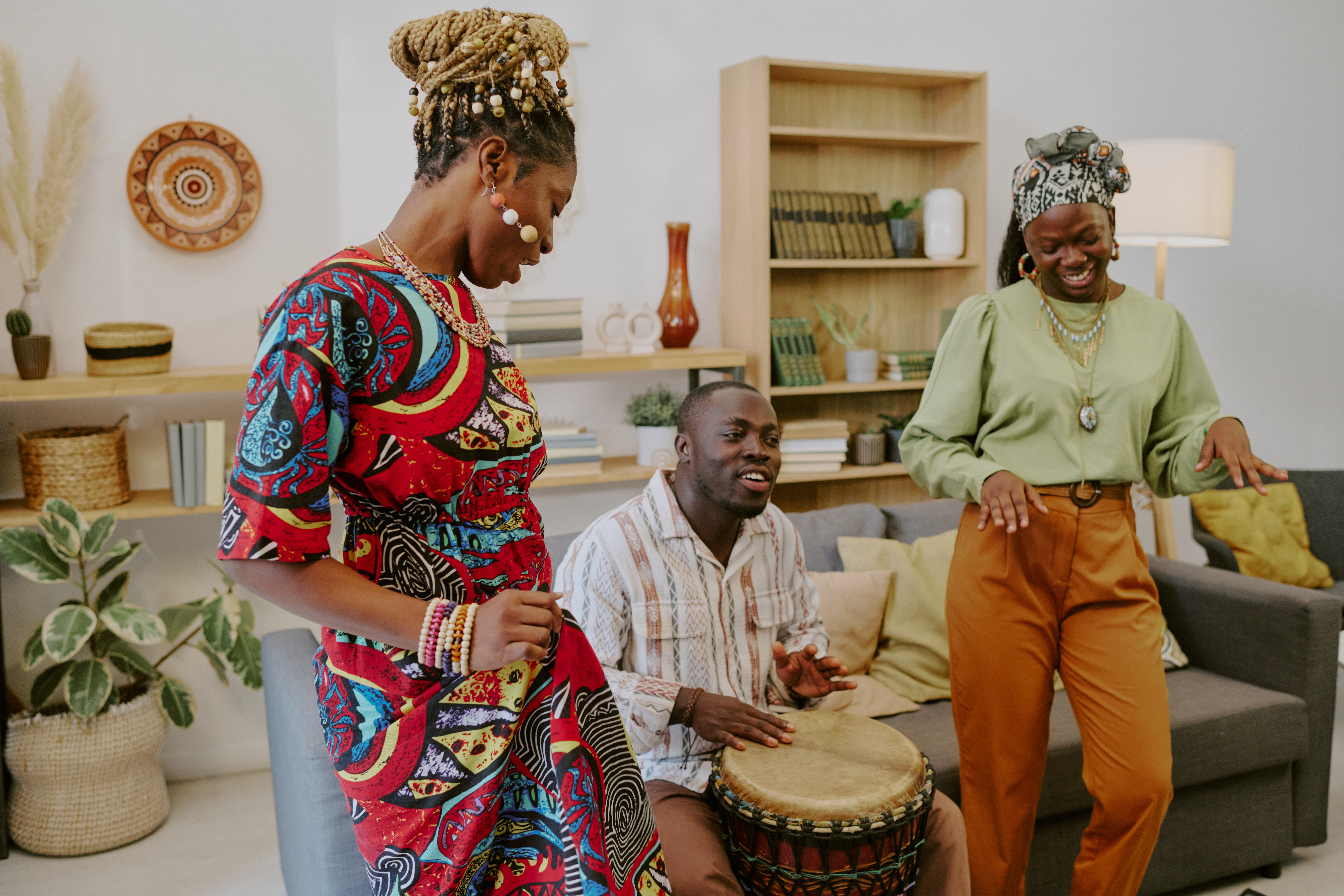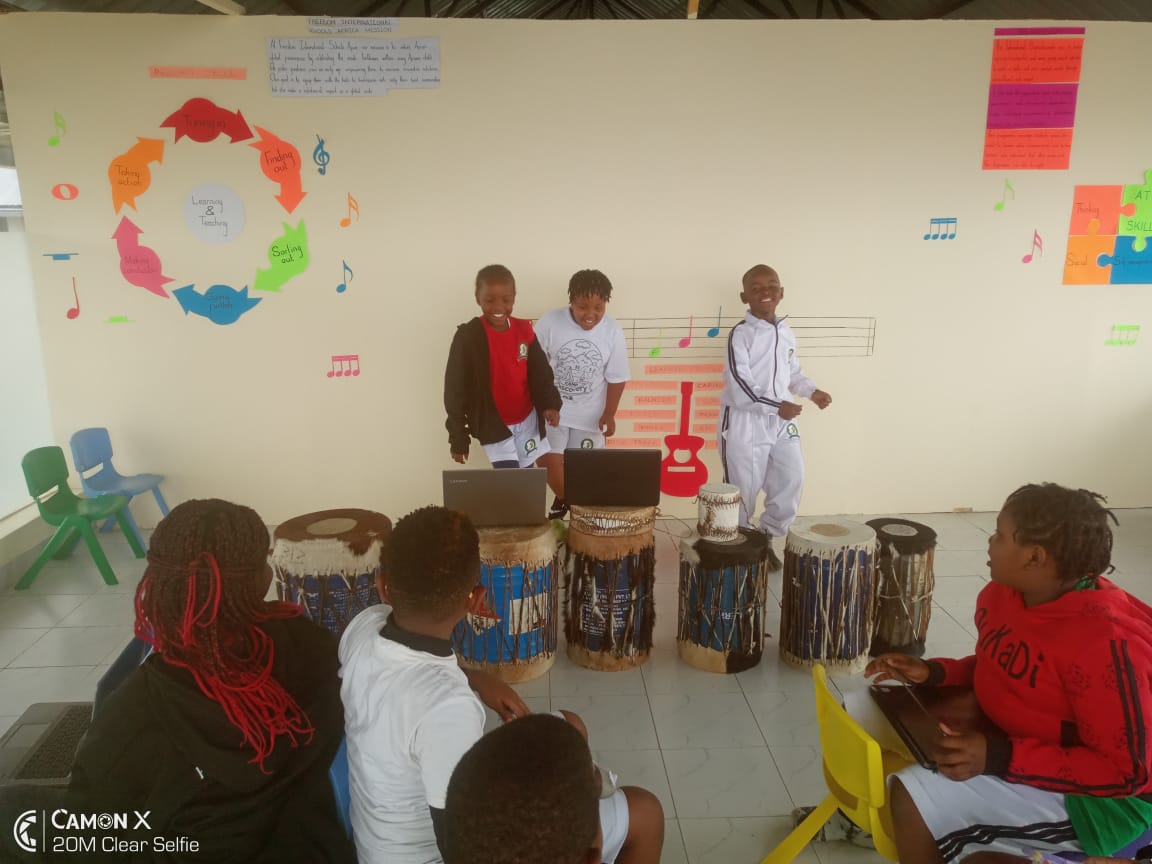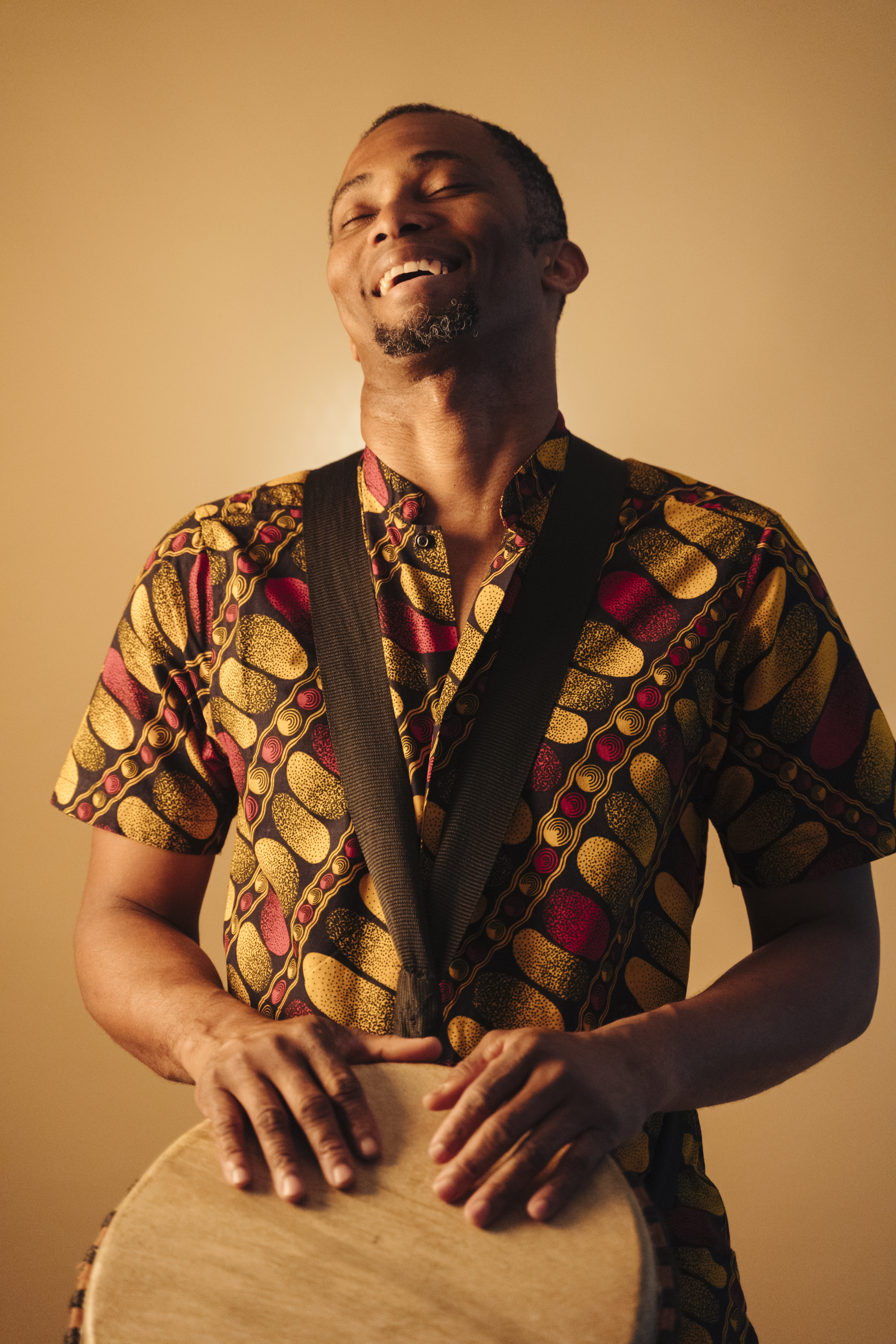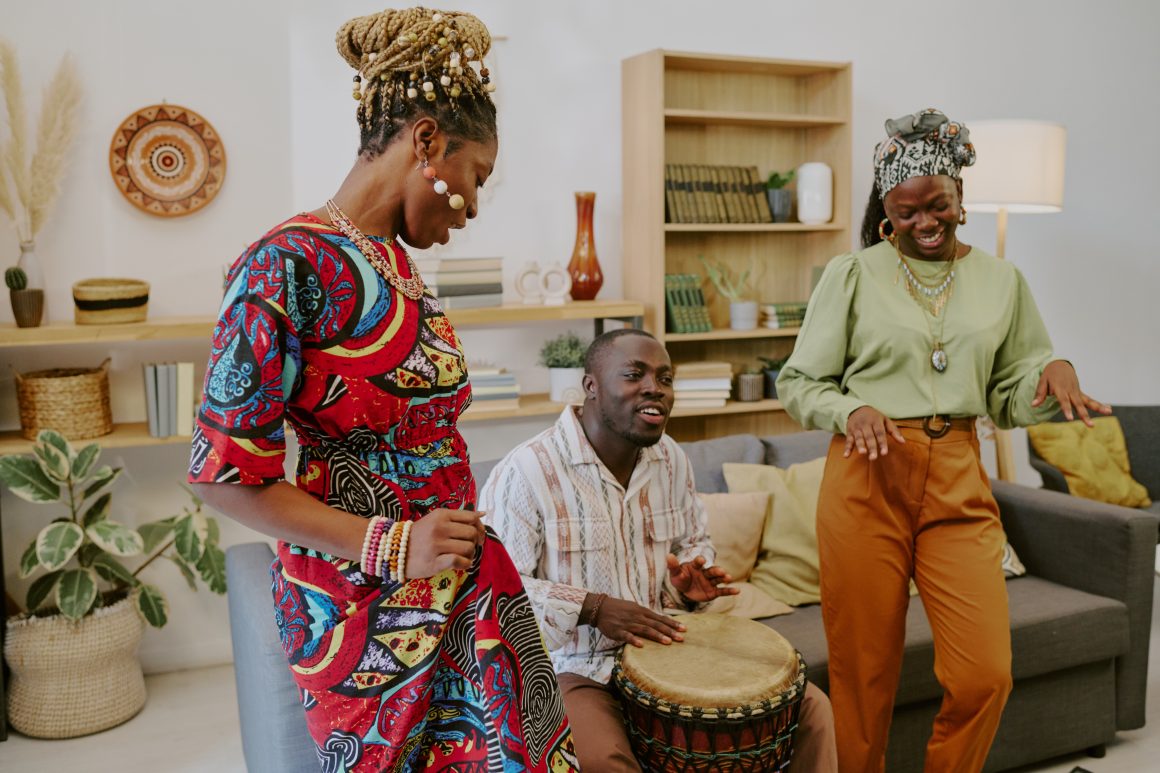Celebrating the Rhythm of Africa: The Art of Drumming, Dancing, and Singing
African drums pulse with stories that connect generations, while dance and song bring those stories to life in every rhythm and step. When your child learns these African arts, they do more than perform—they embody a cultural heritage that builds confidence and shapes global citizenship. At FISA, this vibrant tradition blends seamlessly with Afrocentric education to nurture young leaders who stand proud in their identity and ready to influence the world. Join us to see how these powerful art forms transform learning and inspire greatness. Learn more about the cultural significance of African drums here.
Embracing African Drums and Rhythms

The Heartbeat of Cultural Heritage
Drums speak a language that transcends words. The beat of African drums carries the stories of ancestors, echoing through time. Your child learns the art of drumming and connects deeply with cultural roots. Each beat teaches them about history, unity, and resilience.
The significance of drumming in African culture can’t be overstated. It’s more than music—it’s communication. For instance, in many African societies, drums signal ceremonies, celebrations, and even warnings. This rhythmic form of expression teaches kids the importance of listening and responding. At FISA, we integrate drumming into the curriculum to foster a sense of identity and community. It’s a powerful way to help students feel grounded and proud of their heritage.
Learning to drum isn’t just about rhythm; it’s about discipline and teamwork. As your child masters the beats, they learn patience and cooperation. These skills extend beyond music, preparing them to thrive in a connected world. See how drums play a vast role in society here.
Building Confidence Through Afrocentric Education
At FISA, education is more than textbooks. We see it as a way to build confidence. By embracing an Afrocentric approach, we encourage students to see their cultural identity as an asset. This perspective transforms learning into a journey of self-discovery and affirmation.
Imagine your child standing tall, proud of their roots and ready to share their story. Our curriculum emphasizes African history and achievements, providing a balanced view of the world. This education empowers students to challenge stereotypes and lead with confidence. When your child knows who they are, they’re more likely to succeed in any environment.
Afrocentric education also highlights the importance of community and collective success. Students learn that their individual achievements contribute to the greater good. This understanding fosters a sense of responsibility and leadership. At FISA, we don’t just teach facts; we cultivate changemakers ready to impact the world.
The Power of Dance in Afrocentric Education

Expressing Identity and Belonging
Dance at FISA is a celebration of self-expression and identity. When your child learns traditional African dances, they explore their heritage physically and emotionally. Every movement becomes a story, a way to express who they are and where they come from.
Dance also fosters a sense of belonging. In a dance class, students learn to move in harmony with others. This teaches them about cooperation and empathy. They discover how their individual actions can enhance the group, mirroring the importance of community in African cultures. This understanding builds a strong foundation for future global interactions.
Through dance, students explore themes of identity and cultural pride. This exploration helps them develop a deep appreciation for diversity and respect for different perspectives. It also prepares them for leadership roles where understanding and collaboration are key. At FISA, dance is not just an art form; it’s a tool for empowerment and growth.
Inspiring Global Citizenship and Leadership
Dance isn’t just about steps; it’s about storytelling and leadership. At FISA, we use dance to inspire students to become global citizens. By learning dances from various African cultures, students gain a broader perspective on the world. They learn to value diversity and embrace different viewpoints.
This exposure to cultural diversity fosters empathy and understanding. Students realize that leadership isn’t about dominance but collaboration and inclusivity. They learn the importance of listening and adapting. These skills are essential in today’s interconnected world, where leaders must navigate complex global challenges.
FISA’s dance program emphasizes the role of tradition in modern leadership. Students learn that honoring the past can guide future actions. This understanding creates confident leaders who are proud of their heritage and ready to make a difference. Our approach to dance cultivates a sense of responsibility and a commitment to positive change.
Singing as a Tool for Empowerment

Celebrating African Arts and Traditions
Singing is an integral part of African culture and education at FISA. Through song, your child connects with traditions that celebrate life and community. Singing teaches them about rhythm and harmony, both musically and socially.
African songs often carry messages of hope and perseverance. When students sing these songs, they learn about resilience and strength. This understanding empowers them to face challenges with courage. Singing becomes a source of inspiration and motivation, reminding them of the power of unity and collective support.
Our singing program also highlights the importance of storytelling. Students learn to use their voices to convey stories and emotions. This skill enhances their communication abilities and boosts their confidence. At FISA, we believe that every child has a story worth sharing, and singing is a powerful way to express it.
Creating a Future of Hope and Opportunity
Through singing, students at FISA build a future filled with hope and opportunity. They learn that their voices matter and can create change. This realization transforms their approach to learning and leadership.
Singing fosters a sense of community and belonging. Students learn that their contributions can uplift others. This understanding encourages them to take initiative and lead with compassion. As they share their voices, they inspire others and create a ripple effect of positive change.
At FISA, we use singing to instill a sense of purpose and possibility. Students realize that their dreams are achievable and that they have the power to shape their futures. Singing becomes a tool for empowerment, encouraging them to pursue their passions and make a difference in the world.
🌍✨
Learn more about the role of drums in African culture here and the significance of music therapy in education here.


